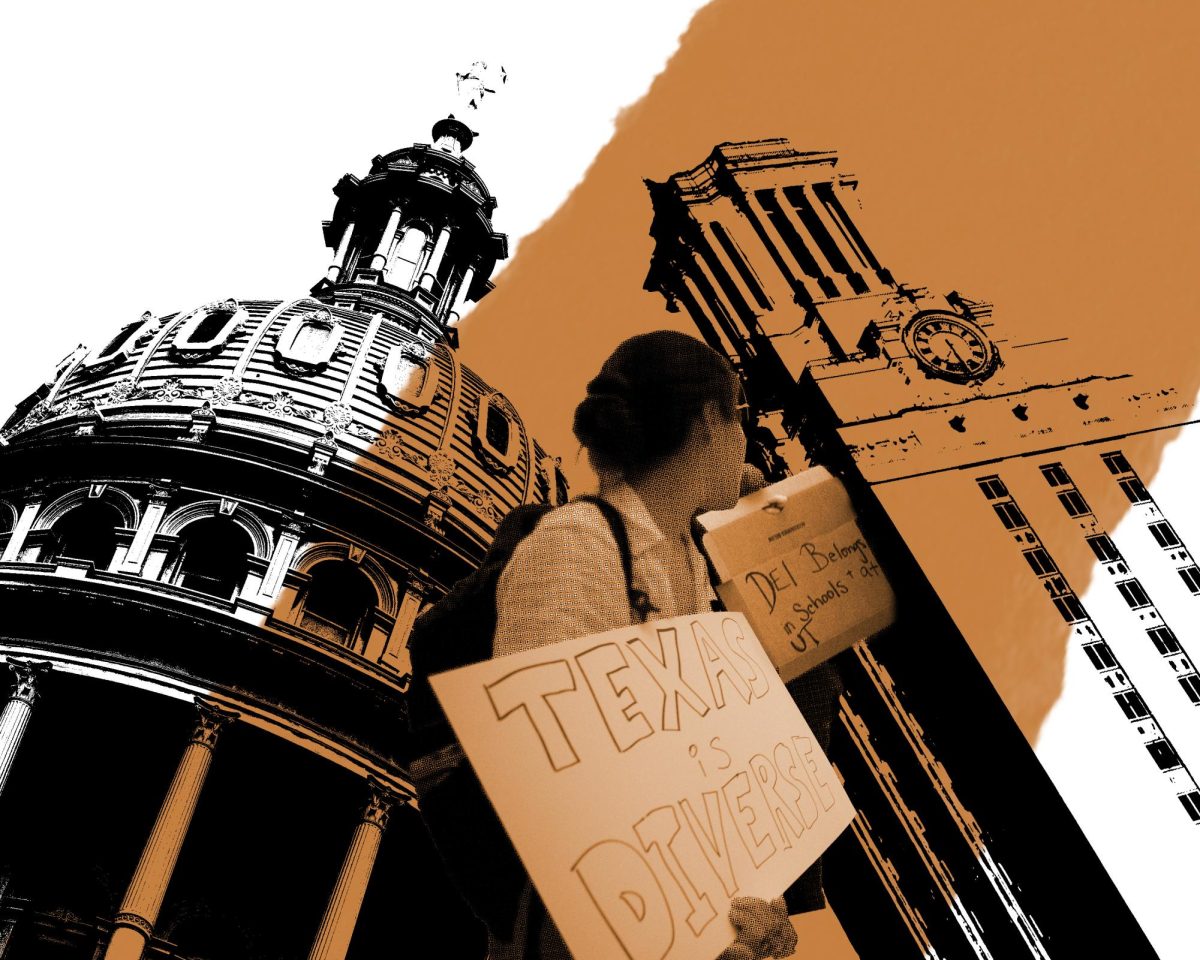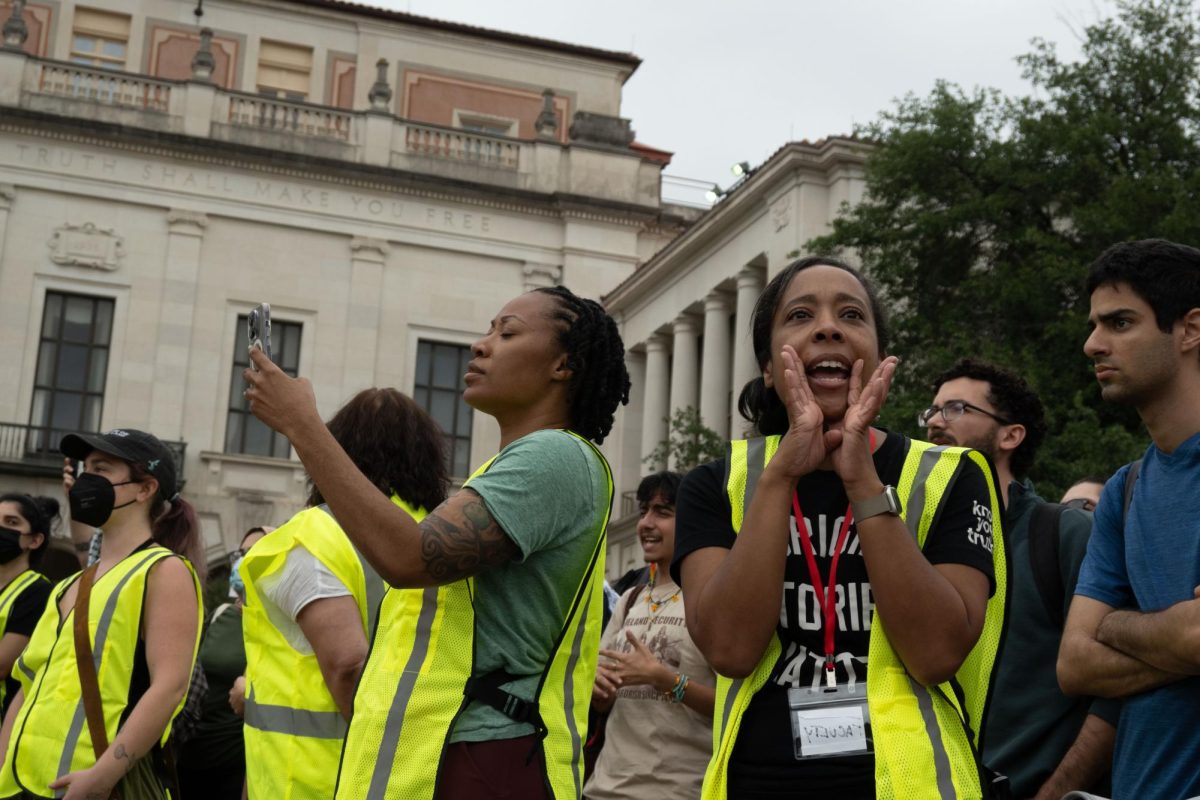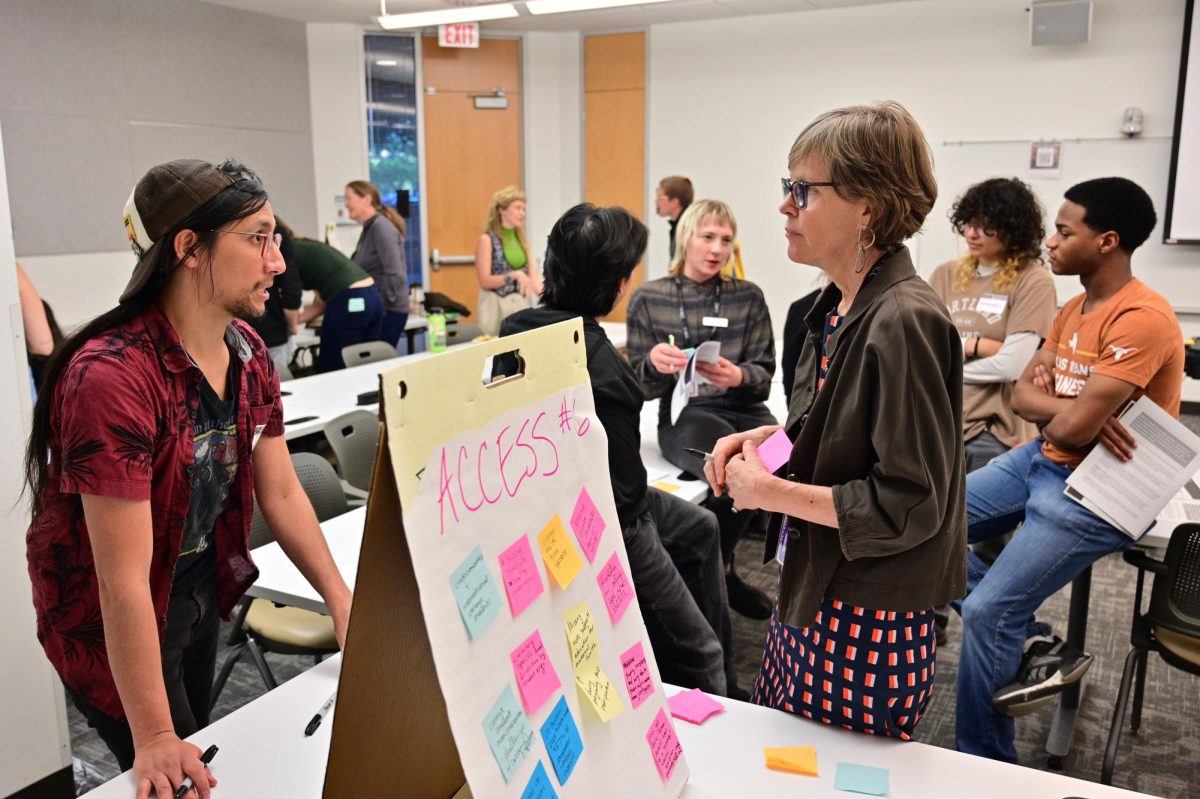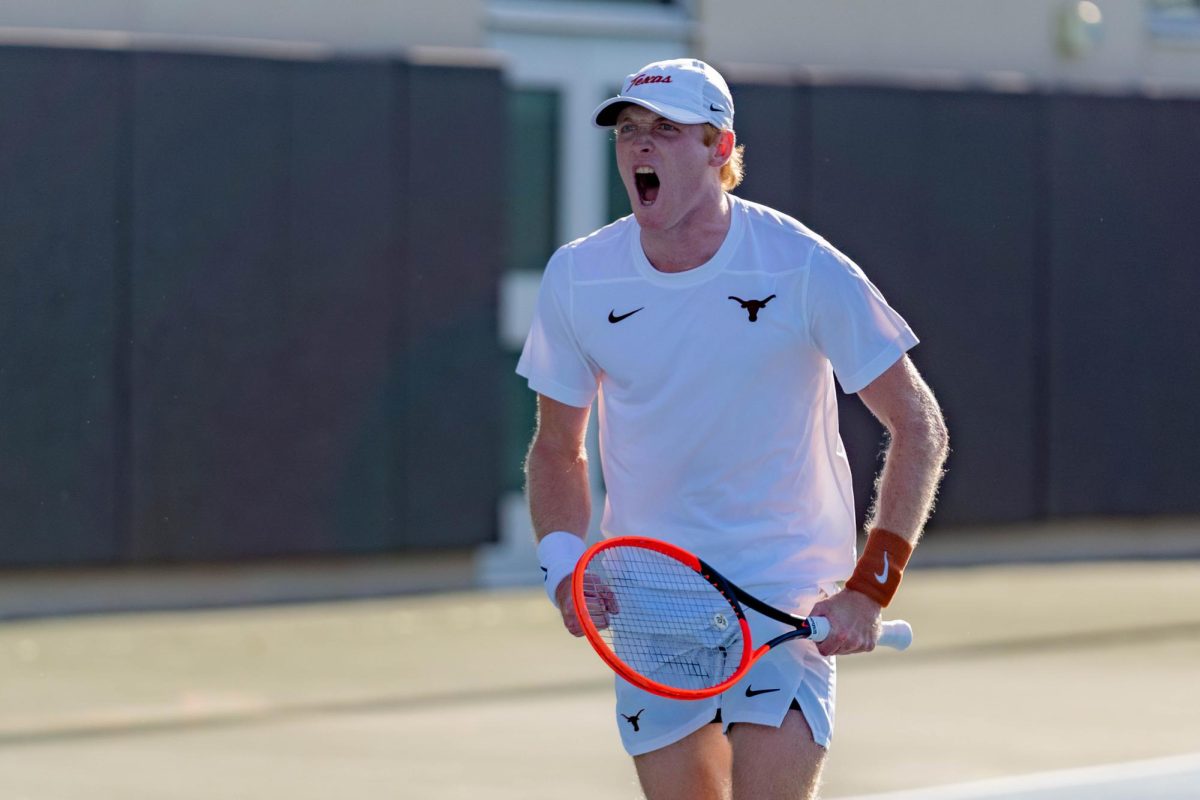Stuart Reichler, an associate professor of practice in the Freshman Research Initiative, gives new UT students their first-ever taste of academic research. Since teaching at UT for 22 years and living in Austin even longer, Reichler said the campus became more than just a place to work.
“My roots are pretty deep here,” Reichler said.
Recently, however, Reichler finds it harder to speak fondly of UT. After lawmakers passed bills banning diversity, equity and inclusion offices at public universities, limiting tenure and other political changes that struck higher education throughout the state, Reichler said he and his colleagues recently found the University’s environment draining.
“Besides feeling sort of deflated and demoralized, … it’s tiring to have to continue to fight this political fight over and over again,” Reichler said.
In a recent survey published by the American Association of University Professors and the Texas Faculty Association, 63.3% of Texas faculty responded they would not recommend Texas for a faculty position to their out-of-state colleagues, with 28.7% planning to interview elsewhere this coming year and 19.1% stating they already interviewed elsewhere since 2021.
Of the respondents, 56.8% reported the current Texas political climate as the leading cause. Other popular reasons related to Texas’ political climate included issues over DEI, academic freedom, tenure, reproductive health and abortion access and LGBTQ+ issues.
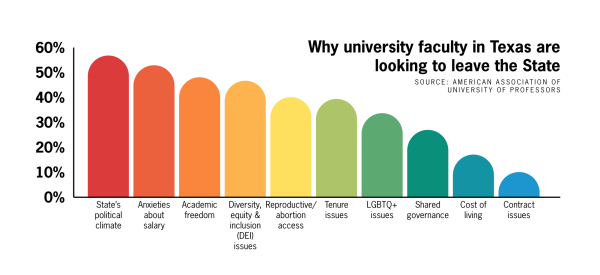
Brian Evans, interim president of AAUP and a leader in the survey efforts, described how the results highlight a concerning future for UT.
“We had faculty who turned down offers because of the plans for higher education legislative measures,” Evans said. “In the next session, we had graduate students from faculty leave.”
The survey results show an abnormally high and unprecedented turnover rate, Evans said, foreshadowing a very concerning future for all of higher education in Texas.
Karma Chavez, an executive committee member of UT’s AAUP chapter, said she personally noticed a “chilling effect” among faculty. Chavez said her colleagues teaching classes in racial and ethnic studies delayed some of their classes out of fear of political retribution.
“There’s a cultural fear that’s been created, and there’s been very little communication leadership from the administration at places like UT that would quell faculty fears,” Chavez said. “It’s all been in whisper networks and that just doesn’t cut it.”
However, the impact of this legislation goes further than just a “chilling effect” among its current staff.
According to Reichler, recent attacks on tenure, coupled with lower pay for faculty and support staff typical of public universities, especially make schools like UT look less attractive to high-quality talent.
“Most faculty understand that typically you’re earning less of a salary than you would in the private sector,” Reichler said. “The benefits are that you have more control over your research when you work at a university and you have this tenure (potential) … that gives you some freedom and some job security, … so when you’re (threatening) to take one of the legs of that stool away people are gonna think about whether they really want to come here or not.”
Jacob, an engineering graduate student who asked to be referred to by first name only, highlighted his perspective on the importance of tenure, describing the job security, academic freedom and diversity of thought it provides professors.
“The holy grail in your academic career is to get tenure,” Jacob said. “It allows you complete job security, and job security, particularly when you’re in a field that requires you to be outspoken about controversial topics, it’s just very important.”
AAUP also listed faculty in other states such as Georgia, North Carolina and Florida as having similar sentiments due to recent political influences.
In a similar United Faculty of Florida survey done earlier this month, almost 300 out of 642 respondents said they planned to seek employment in another state within the next year, and 233 said they did not plan to stay in academia long-term because of changes to tenure, contracts and academic freedom.
These results came after Florida planned to limit public colleges’ DEI efforts and passed successful legislation earlier this year allowing public university trustees to call for a tenure review “at any time.”
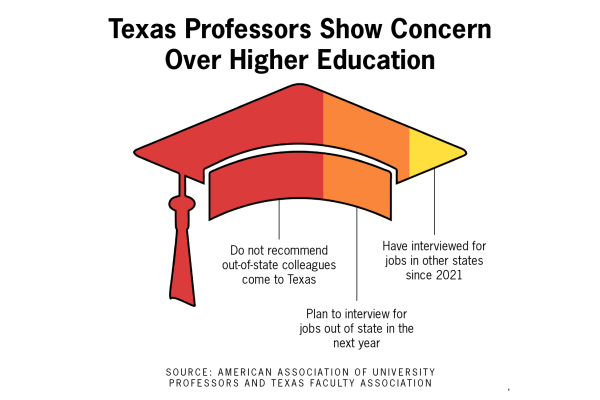
Andrew Gothard, UFF president and Florida professor, saw the damage these political changes wreaked on Florida universities firsthand.
“Across the state, faculty searches are failing,” Gothard said. “They’re not able to fill all of the roles that they want for the folks who are leaving, … and if they’re not failing, the quality and the number of candidates has dropped significantly. Morale is very low. People are disheartened. They are upset. They feel attacked and maligned by their elected leaders.”
Gothard said many of Florida’s current competitive academics have now considered leaving the state and new academics interviewing for positions started eliminating Florida as an option.
It isn’t just red state universities aware of this faculty turnover, other public universities are also keenly watching staffing developments at these universities, but for a different reason.
Sean Gailmard, a professor at the University of California, Berkeley, describes how many universities outside these red states see academics leaving due to political reasons as a potential hiring opportunity, often paying special attention to their applications.
“When we search for faculty in Texas public universities, I will give them that second look, that third look,” Gailmard said. “Those are really important reasons for us to be able to tell them, ‘Hey, you’ll have a good future at universities in our state.’”
University President Jay Hartzell addressed faculty retention concerns in his recent State of the University address, where he said UT’s ability to find qualified faculty is still world-class.
“This is the world’s leading destination for higher education, and we are in a special set of universities that provide that,” Hartzell said. “Just this year, we hired over 200 faculty. We just promoted about 230 across a variety of ranks and roles at the University.”
Reichler said although he is not considering leaving UT himself, he understands the difficult decisions his colleagues face considering both the personal and professional impacts of recent political changes.
“I have colleagues who have tenure who’ve moved institutions,” Reichler said. “It’s not unheard of. It’s trickier, (but) there’s just lots of complications (with) spouses and families and the life you’ve built for yourself depending on how long you’ve been in Austin.”
Reichler said ultimately, Texas as a whole needs to place more value on higher education.
“Our institution … and the other public Texas universities really need to work harder about letting people know what happens and how critical our institutions are for our state,” Reichler said.



